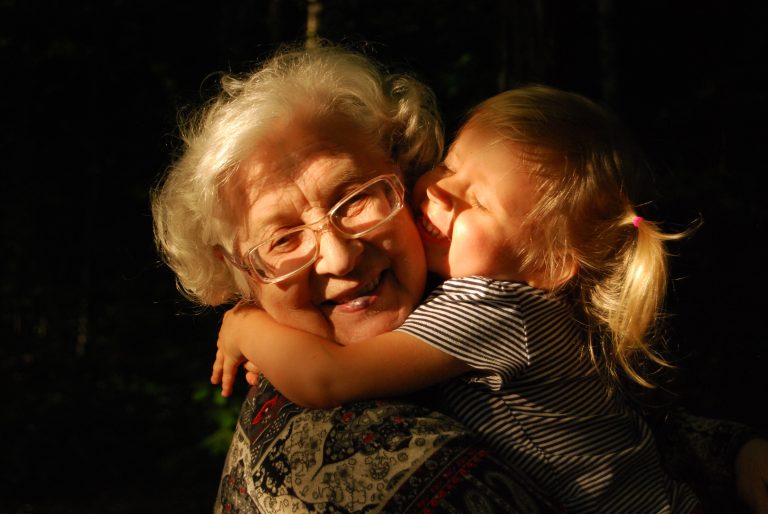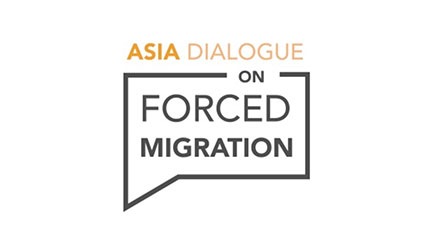The proposal of Tony Abbott to revive the Pacific Solution
and reinstate temporary protection visas for asylum seekers has been rightly
described by Petro Georgiou as ‘cruel’. It is a return to John Howard and
Pauline Hanson populism. It illustrates again that despite progress in
treatment of refugees in recent years, the case for the humanitarian treatment
of the most vulnerable people on earth is never won. It is always work in
progress.
Fear of the foreigner, the outsider and the person who is
different is as old as human history itself. In Australia, we have a sorry
history of mistreating these ‘outsiders’, whether they were Chinese, Germans,
Jews, ‘reffos’ or ‘balts’. After their tragedy in exile, it is not surprising
that the Jewish people place treatment of exiles as even more important than
their dietary laws or the observance of the Sabbath.
Forgive me for repeating what I wrote a year ago, but the
recent populist challenge to a humanitarian policy needs rebuttal.
If
Ben Chifley had responded only to populist prejudice, his government would not
have accepted Jewish refugees after WWII. Malcolm Fraser would not have allowed
large-scale Indochinese refugee programs in the 1970s and the 1980s if he had
consulted only opinion polls. They both showed leadership in ‘encouraging the
better angels of our nature’ as Abraham Lincoln put it. We now look back with
pride that through Chifley and Fraser’s leadership we helped not only refugees,
but also ourselves. Being risk takers and courageous, refugees are usually
great settlers. We see it in the professional and business successes of Jewish,
Indochinese and other refugees. It gladdens our hearts to see the success of
their children in high school and university examinations. Refugees pay us back
one hundred fold for our generosity. They may sometimes lack language and
technical skills, but they have the priceless gifts of high motivation and
energy for themselves and their children. They become Australian citizens much
faster than migrants.
So
much of the public discourse on asylum seekers lacks balance and perspective.
- Push factors, crises such as war and persecution, force desperate
people to reluctantly leave their homes – whether it be in Europe, Korea, Vietnam,
Iraq, Afghanistan, Africa or Sri Lanka.
These push factors are the primary reason for refugee flows. The
attraction of a safe haven is a secondary factor. When the crisis
subsides, so does the people flow. - As an island country at the ‘end of the line’, Australia
does not have anything like the refugee/asylum seeker problems that occur
elsewhere. In 2009, Australia
received 6,170 asylum applications. In the US
it was 49,020, France
41,980, Canada 33,250, UK 29,840 and Germany 27,650. At the end of
2008, there were 42 million forcibly displaced persons worldwide,
including over 15 million refugees. Over two million refugees from Iraq have been given temporary asylum in
neighbouring Jordan and
Syria.
Australian exposure to asylum seekers is miniscule by comparison. How
miserable and parochial Tony Abbott makes us all feel by exploiting
vulnerable people for his political purposes. The Holy Family was indeed
lucky when it fled as refugees to Egypt, that there was no
‘African solution’ to punish them. As Immigration Minister Chris Evans put
it in March this year ‘While there is poverty, famine, wars, weak and
corrupt governments, chronic unemployment, environmental degradation,
natural disasters and racial, religious and political persecution, we will
see people on the move. And Australia, as a wealthy developed country,
where there is stable government, an abundance of opportunity, and most
importantly – where you can be safe
– will always be an attractive destination.’ - The pattern will vary from year to year, but the majority of asylum seekers come to Australia by air and not by sea. The Department of Immigration in 2005 put it succinctly ‘Historically, the Australian examples of people smuggling which attract most media attention have been by boat. However, the majority of smuggling into Australia and other countries occurs by air.’ As the Australian Parliamentary Library put it last month: ‘The vast majority of asylum seekers … arrive originally by air (96%-99%). Boat arrivals only make up a small proportion of applicants.’
- Most boat arrivals who seek asylum are found to be refugees. The Australian Parliamentary Library has said that ‘past figures show that between 70% to 97% of asylum seekers arriving by boat have been found to be refugees. The overall recognition rate for all asylum seekers, including those who came by air, was 22% in 2008’.
- Our exaggerated focus on boat people ignores the fact that there
are about 50,000 illegal over-stayers in Australia. They are real
illegals, unlike asylum seekers who are legally entitled to seek our
protection whilst their claims are assessed. Almost 60% of these illegals
have over-stayed for five years or more. These are people who come
lawfully on temporary visas and then illegally stay. There are about
20,000 of these new illegals each year. The largest number of illegal
over-stayers are from the UK. The media scarcely ever mentions them.
But give them a smell of a boat foundering in the Arafura
Sea and nothing can contain them. The ABC is little better
than the rest. - Kevin Rudd calls people smugglers ‘scum’. Some undoubtedly are, but
for some people they are a lifeline. Desperate people will do desperate
things and take high risks to escape war and persecution. As the
Department of Immigration puts it on its website ‘People use the services
of people smugglers for many reasons, including to seek protection because
of limited opportunities for legitimate migration … ‘. There are tens of millions of refugees
throughout the world and only about one in 200 gets selected. Priority
setting and impartial processing of refugees just does not occur. There is
no ‘queue’ worth the name. So people take risks to escape appalling
circumstances. Many thousands of Australian citizens, particularly Jews,
could only escape Nazism or Communism by buying their way out of tyranny,
paying people smugglers. ‘Brokers’ are paid to help North Koreans escape
their vile government. If I were a husband and father of girls in Afghanistan,
I would certainly consider paying a people smuggler, if I had the money,
to get then to freedom and escape from the Taliban. Armchair commentators
seldom have to make the hard choices that desperate people do.
We
have shown in the past that we can successfully manage refugee flows. The
Fraser Government had 2,000 Indochinese people come by boat. Over 400,000
Indochinese refugees were temporarily camped in Indonesia,
Malaysia and Thailand. The
‘threat’ was managed successfully by strong leadership that won the public case
for generosity.
So
we need to get a balance of perspective about asylum seekers coming by boat.
Despite difficulties and setbacks, refugee and migration settlement in this
country is our greatest success. The government’s ability to get the balance
right between humanity and border protection is being tested. It will always be
a difficult and messy business.
Beyond
the current dispute, we need to be proactive and address, if we can, the
problems of asylum seekers at source. It is late in the day, but the Australian
government should consider proposing to the Sri Lankan Government that Australia would be prepared to take, say 3,000
to 5,000 Tamils who are languishing in resettlement camps in Sri Lanka.
Careful assessment by Australian officials in association with international
agencies would need to be made to ensure that those selected faced real
discrimination and were not in the military wing of the Tamil Tigers. Those
selected would never be described as ‘refugees’ as they would still be ‘in
country’. It would require considerable diplomatic skill to negotiate such an
arrangement with the Sri Lankan government.
It is highly likely that the Sri Lankan government might privately
welcome the opportunity to rid itself of some of its opposition. It is also not
so difficult to anticipate possible future refugee flows. North Korea
would be an obvious future candidate. We should be ready.
Such
an approach of processing and accepting people ‘in country’ would send a
message to would-be asylum seekers that the Australian government intends to
treat the problem at source and not on the Australian coast.
There
is precedent for this in the Special Humanitarian Program which was developed
by the Fraser Government in 1982 to assist persons in Latin America who were
oppressed by military governments particularly in Chile
and El Salvador.
The SHP was deliberately designed and worded so that it could not be seen as a
refugee program. Thousands came to Australia under this program. It
was done quietly and diplomatically. The military rulers were pleased to see
some of their opposition leave. I wrote about it in ‘Things you learn along the
way’, p221, which was published in 1999.
If
Australia had such an approach and anticipated possible future flows of asylum
seekers, the Australian government and people would be in a much stronger moral
position to be ‘tough on boat people’. I reluctantly concede that a generous
humanitarian policy must go hand in hand with tough compliance and border
protection. The Australian public will not accept otherwise.
Australia owes a great debt to
Malcolm Fraser for his unwavering concern for vulnerable and defenceless people
escaping from tyranny and persecution. He chose not to pamper to the
selfishness and fear that is in all of us. He appealed to our ‘better angels’
and we responded. We need leaders today with the same courage and leadership he
displayed in the 1970s and 1980s.
Unlike
ministers in the Howard era, Minister Evans has humanely and skilfully handled
the politically fraught issue of boat people. But he needs to be supported by a
public education and information program to better promote the facts about
people flows and to keep at bay the unscrupulous, who are only too ready to
exploit our fear of the foreigner, the outcast, the person who is different.



